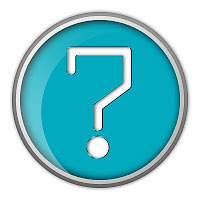Does Traditional Publishing Really Mean Anything Anymore?
 Hey, all! Thanks so much to everyone who stopped by
Ju Dimello's
blog to catch my interview and giveaway. Just so you know it's still going on until Sunday. :)
Hey, all! Thanks so much to everyone who stopped by
Ju Dimello's
blog to catch my interview and giveaway. Just so you know it's still going on until Sunday. :)**Now back to our regularly scheduled program**
Years ago if someone announced they had self-published a book, writers would cock an eyebrow and look down their noses. Maybe the self-published author would even get laughed at.
Not anymore.
Self-publishing is on the rise (if not already at a peak) and the only people laughing are the self-published authors. And they're laughing all the way to the bank.
Case in point is author Amanda Hocking who has been in the news a lot. Amanda Hocking is only 26 years old, yet she has 9 self-published books to her name, and sells 100,000+ copies of those ebooks per month. She has never been traditionally published.
Based on an article in the Noveler, you don't have to be traditionally published to sell a lot of ebooks. You don't have to be A-List famous, either. Take this monthly sales list of top Kindle indie authors, for instance: http://www.novelr.com/2011/02/27/rich-indie-writer
Now those, of course, are the success stories.
We like to point them out because they're what dreams are made of. Based on those authors, it gives hope as well as an option to writers.
I mean, do readers really care how a book is published if it's a good book?
Do readers really buy books because of the publisher?
No. Not unless you're drawn to Harlequin category books. Most readers probably buy more according to the author, or the book's reviews, and/or word of mouth. At least, I do.
More and more traditionally published authors are seeing that too--as well as the advantage of going independent.
Why are more authors choosing to self-publish?
*To have more control over their career
. It's their book. They can call the shots. Thus, they're responsible if a book is edited and marketed succesfully. Some even hire professional editors. But they're also responsible if it's edited and marketed unsuccessfully. But if they have an established platform, they already do a bulk of their own marketing anyway.
*To increase their sales of their already traditionally published novels—and thus, make more $$$. They can offer their self-published ebooks at a cheaper price than the traditional publishers and those sales can help their traditionally published books.
HOW? If you own an ereader, aren't you more likely to TRY a new author for 99 cents VS $9.99? Then if you like an author, you're more likely to buy their other books, even if they're a higher price.
*To provide a home for books that didn't quite "fit" into that publisher/editor's mold or tastes.
I hear more and more stories like this: a traditionally published author writes another book. Assistant editor LOVES it, and talks it over with senior editor. Author goes out and buys champagne in anticipation of sale. Then gets the bad news. Old editor has stepped down. New editor does NOT love book like other editor. No sale.
So…does that mean that book is automatically bad now? Does that deem the book not publishable? I don't think so.
And now the author has an option.
The huge growth of digital readers and books (as well as social marketing) has made this avenue available for a lot of writers.
Don't be fooled, though, self-publishing is a lot of work!
(Which is one of the reasons I haven't considered it.)
However, for some authors willing to put in time and work hard at their craft, it can be a very good career move. And thanks to the amount of success smart writers are having, the line between traditional and self-publishing has blurred. The gateways to publishing aren't as restrictive.
And whether you embrace or shun it, it's here to stay.
But if an author is willing to work hard, write a good book and market it smartly, does it really matter in the end HOW it gets published? It shouldn't. A good read is a good read no matter how the book gets into your hands. :)
What about you? Have you thought about self-publishing for yourself?
Do you see a difference anymore between traditional and self-publishing?
Do you think it matters anymore what route a writer decides to take?
Published on March 11, 2011 02:22
No comments have been added yet.



